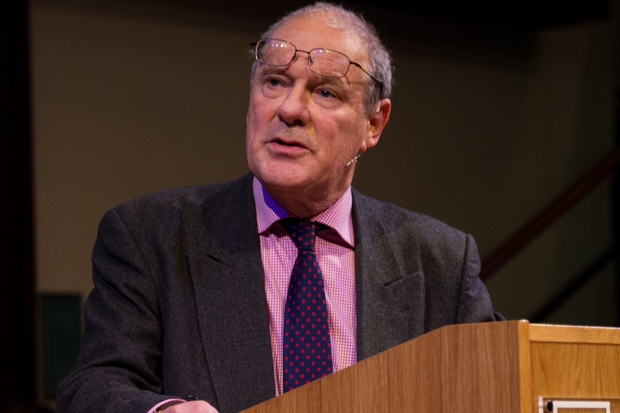Mao Tse-tung was by far the greatest therapist of drug addiction in world history. He threatened to execute opium addicts if they didn’t give up. Threats to murder were about the only utterances of Mao’s that could be believed, and 20 million addicts duly gave up.
I hope you don’t think that I am advocating Mao’s methods, but it does seem to me that his success tells us something very important about addiction. Mao didn’t say, nor would it have made sense for him to say, I will execute anyone who suffers from hypothyroidism, say, or rheumatoid arthritis; and therefore there must be a category difference between illness and addiction.
In Vietnam, tens of thousands of American soldiers addicted themselves to heroin, torn as they were between terror and boredom; but two years after their return to the States, their rate of addiction to heroin was no greater than that of the draftees who were due to go but never got to Vietnam because the war had ended.
Bear in mind here that we are not talking of one or two cases, that is to say exceptions, but of millions and scores of thousands of cases. Furthermore, the evidence is quite conclusive that even in more normal circumstances huge numbers of addicts give up without any assistance whatever: in fact, my mother was one of them, she gave up smoking aged 48 after more than 20 years of smoking. Unfortunately, she couldn’t give up the harm it had done her, but that is another matter entirely: that was a matter of real illness, caused by her habit.
Most people think that addicts are ‘hooked’ by their drug, but this is nonsense. Heroin addicts, for example (and heroin addiction is the paradigm that most of us use in thinking about addiction) spend on average 18 months taking the drug on and off before they are addicted to it. Among other things, they must overcome a natural revulsion to a substance that makes them nauseated and sick. It is not true that they are ‘hooked’ by heroin, then, as if they were fish in a sea swallowing a baited hook without any awareness of what they are doing; it would be more true to say that they hook heroin than that heroin hooked them. Incidentally, the fact that it takes considerable effort and determination to become addicted has been known ever since De Quincey’s Confessions of an English Opium Eater, in which he described how he took laudanum once a week for ten years before he became addicted to it.
I have asked hundreds and possibly thousands of heroin addicts how they started taking heroin. Almost invariably they said, ‘I fell in with the wrong crowd.’ I would reply, ‘It’s strange that I meet so many people who fall in with the wrong crowd, but I never meet any member of the wrong crowd itself.’ And they laughed: they knew perfectly well that this notion of passively falling into the wrong crowd, by some kind of social gravitational force, was absurd.
William S. Burroughs, the famous American who was an even worse man than he was a writer, which is saying something, and who addicted himself to heroin, wrote in his first book Junk, later retitled Junkie, how addicts called the doctors who prescribed their drugs ‘writing fools’, who willingly believed that their patients were unable to stop. And in fact in this book there is evidence of what, at least in the case of heroin addiction, is obviously the case, namely that withdrawal symptoms from heroin are much more (though not entirely) psychological rather than physical. Burroughs describes how he is relieved instantaneously by drugs that can have had little physiological effect upon his symptoms.
The notion of addiction as illness cannot possibly explain why, in the 1950s, there were at most a couple of hundred heroin addicts in this country, and why now there are perhaps 250,000 of them, 150,000 of them injecting. The National Institute on Drug Abuse in the United States propagated the idea that addiction was a disease — a chronic, relapsing brain disease, which is in fact chronic and relapsing in precisely the way that the Holy Roman Empire was holy, Roman and an empire. The Institute’s director at the time, Bob Schuster, did not believe that it was, in fact knew that it wasn’t. However, he was, in his own words, ‘happy for it to be conceptualised that way… for selling it to Congress’, that is to say to obtain more funds for research. This was because Congress would provide funds for research into a bona fide illness but not for a problem that was obviously more psychological, economic, social and in a broad sense spiritual in nature.
Addiction is not something that happens to you, it is something that you do, that confers meaning on your life or disguises the absence of such meaning. The need for meaning is a permanent human one, but it is not easily satisfied. If you examine the lives of impoverished heroin addicts, for example, you find that their existences are not helpless oscillations between desperately searching for a vein in which to inject themselves to avoid the pains of withdrawal on the one hand and the bliss of the oceanic feeling that comes with injecting heroin on the other. Heroin addicts are very busy people, what with obtaining their drugs from dealers and finding the means to pay for them. (Incidentally, criminality is much more a cause of heroin addiction than vice versa.)
Not long ago, for example, I was involved in a case — that ended tragically — in which addicts got up early every morning to go out to work. They called it work, but in fact it was burgling, which they did from nine till five.
Whatever else you call this pattern of behaviour, it is not illness.






Comments